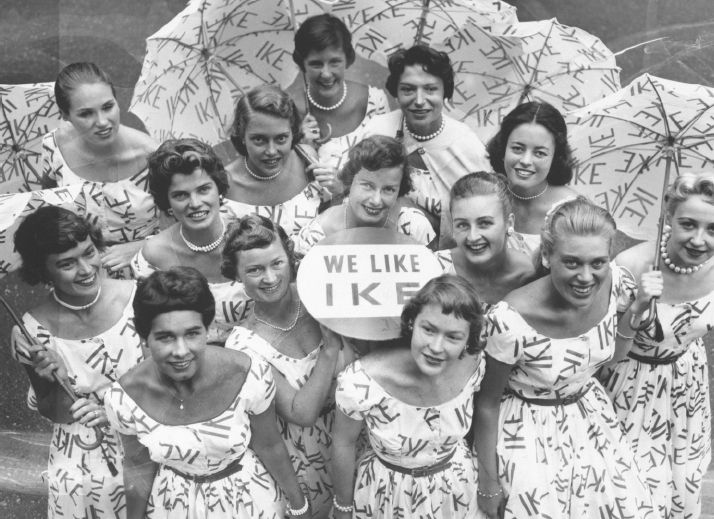What was Eisenhower’s “middle way” on domestic issues?
Printed Page 806

MODERATION WAS THE GUIDING PRINCIPLE of Dwight D. Eisenhower’s domestic agenda and leadership style. In 1953, he pledged a “middle way between untrammeled freedom of the individual and the demands for the welfare of the whole Nation,” promising that his administration would “avoid government by bureaucracy as carefully as it avoids neglect of the helpless.” Eisenhower generally resisted expanding the federal government’s power, he acted reluctantly when the Supreme Court ordered schools to desegregate, and his administration terminated the federal trusteeship of dozens of Indian tribes. As a moderate Republican, however, Eisenhower supported the continuation of New Deal programs, and in some cases, such as the creation of a national highway system, he expanded federal action. Nicknamed “Ike,” the confident war hero remained popular, but he was not able to lift the Republican Party to national dominance.
CHRONOLOGY
1952
- – Dwight D. Eisenhower is elected president.
1954
- – Senate condemns Senator Joseph McCarthy.
1956
- – Interstate Highway and Defense System Act becomes law.
- – Eisenhower is reelected.